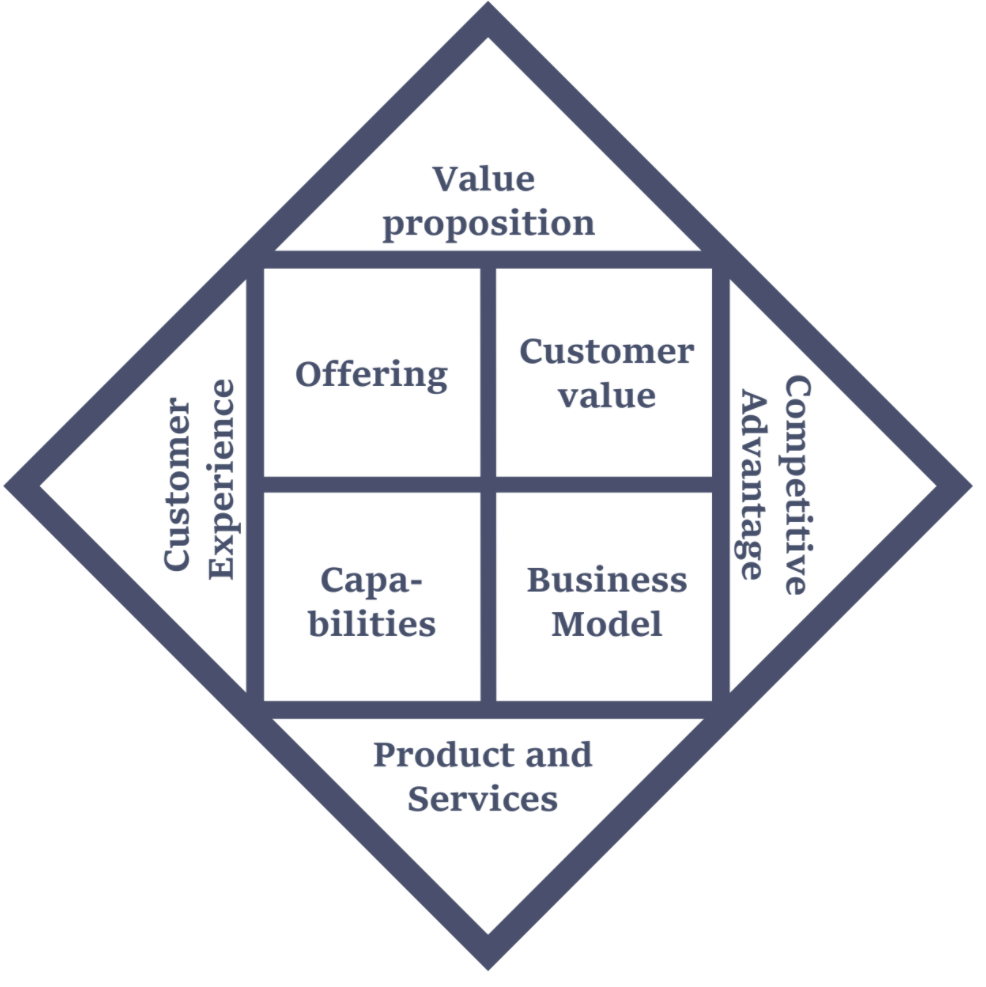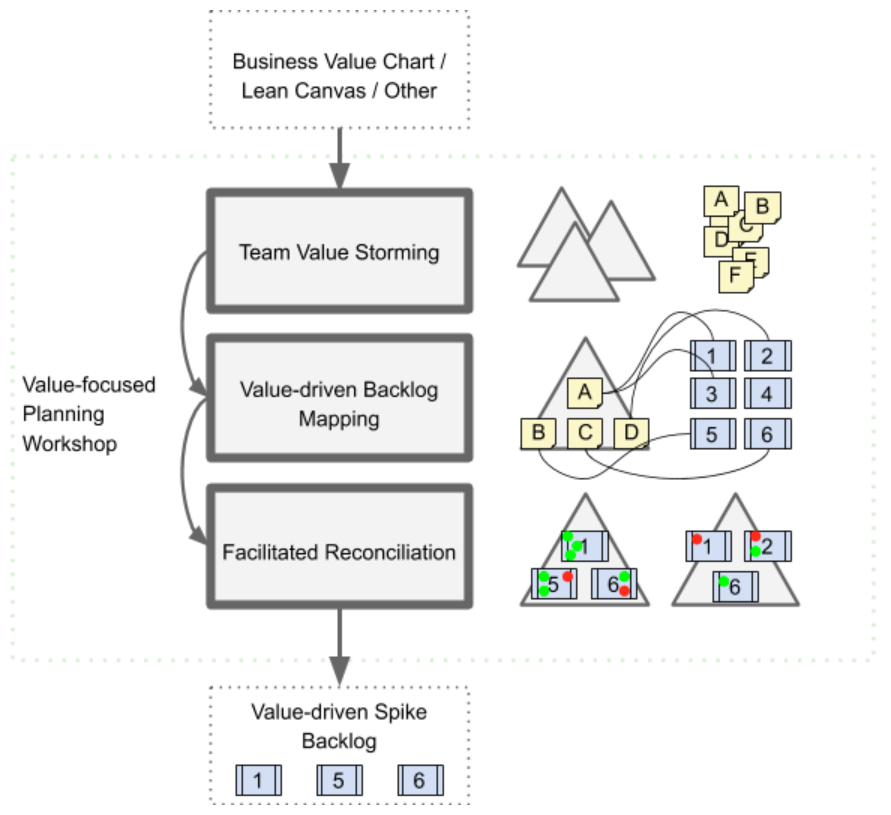Why are value-focused business strategies able to drive your growth?
As a result of recent learnings, I’ve diagnosed the main challenge thousands of firms currently have: How to align their roadmaps in the ecosystem affected by pandemics? The stated hypothesis bolds out the important aspect of customer values.
In this article, I explain how did DO OK pivot in its consultancy offering to help businesses change their service or product development strategies. I reveal some details of two methods: Business Value Chart (™), and Value-Focused Product Planning Workshops.
I love plans, well-crafted and executed, as a result of the visionary genius of entrepreneurship. Modern businesses often state their agility, flexibility, and readiness to change course the next day if required. However, my recent three months of living a life I didn’t plan on proved something different.
Winds of change
I’ve learned that there are thousands of firms with set-up tactics, a roadmap for service or product development. However, as the pandemic touched their environments, none of these plans have helped them to continue their journey as it was before.
As a result, industry sectors such as offline entertainment, aerospace, travel, or wellbeing were affected. However, IoT, collaboration tools, and supplies were boosted. Businesses interfere and one sector outperforms (let’s call them OPs) with a boomerang effect on underperforming firms in another (let’s call them UPs). There are also companies I call “smart observers”, which wait until the risks on their horizon are clear and understandable, at least regarding their form or value. And these are usually on pause with any decision or action (let’s call them SOs).
Whilst UP firms changed our growth plans (or increased the cycle for new customer acquisitions), OP and SO firms were the compass to new opportunities.
The right moment to make a tactical pivot
With DO OK, I’ve taken a couple of them on my plate to understand how to make a shift change in perspective towards servicing both types of businesses.
Usually, when an OP firm knocks on our door, their demand is clear – we need a discovery workshop, we need an audit or tech plan support. We performed a tactical pivot, and together with our business analysts, introduced Online Discovery Workshops. They are an instant pain-relief tool with clear artefacts (i.e. mocks, backlog, estimation, requirements doc, feasibility study, etc.).
What about a strategic pivot?
When it comes to an SO company, the no.1 struggle is to make founders’ plans and expectations in line with the current needs of the target group and future expectations of stakeholders (call them investors, shareholders, teammates, etc.). There is one “but” – the circumstances and environment have changed. This is a strategic pivot.
I was lucky enough to be a participant in a series of consultancy workshops to our partner company from Estonia. I made a hypothetical diagnosis of UPs’ and SOs’ challenges:
“The purposes are the same; emotional or functional values of customers changed. So, businesses need to remap their plans”.
When thinking about emotional values, imagine reputation, fun, or trust, while for functional, it could be scalability, risk-reducing, or time-saving. The IT industry is a perfect polygon for that kind of experiment.
New consultancy offerings
After connecting the dots I’ve decided to include two new positions to DO OK’s consultancy offering:
1. Business Value Chart (™) (BVC) method in partnership with Lingonberry Island (Finland).
2. Value-Focused Product Planning Workshops.
Business Value Chart (™) Method

BVC-based consultancy contributes to the result through, together with founders, building their significant competitive advantage and profitable new business. Why? Because customers with shared values return with 85% probability (src: Mastering Customer Value Management). Furthermore, according to Bain & Company research, the cost of customer acquisition is usually 5 to 25 times higher than the retaining current, so even a 5% improvement might bring up to 95% increase in profits.
The approach, among other deliverables, provides a clear summary of Value Proposition and Business Model strengths or needs for enhancement, whilst suggested actions ensure the competitive advantage of the company, and prepare it for the next steps.
Value-Focused Product Planning Workshop
The Value-Focused Product Planning Workshop is a mix of Bain & Company’s Elements of Value and Steve Blank’s brilliant guide to organising your company.

The main goal here is to find three to four core product spikes and map them to stakeholders’ value pyramids on emotional and functional levels.
The presented exercise delivers an “ah-ha” moment for a workshop team as they answer the question “How can every single product/service feature contribute to every single value?”
When the client wants to address different target groups of their business (simultaneously think of venture capitalists, distributors, and end-users), then several perspectives should be merged into one.
The final deliverable is a concrete foundation for further discovery workshops, backlog refinement, or growth hacking brainstorming.
What about the purpose?
Some might ask: Why do we miss the purpose level? (or the ‘Why?’ question), I’ve noticed that the Why stays the same for OPs and SOs (you name it: secure x% of market share, become a leader in the Y industry, reduce inequality, etc.). For UPs it is usually less optimistic and sounds like “How can I survive or reassure business continuity?” Then you need to take that question back to a BVC method and rework your fundamentals.
Summary
Both offerings are life-changing to our customers and ourselves. According to the BVC method, promoting customers results in growth (even by 2.5 times, src: HBR). The principles of the method revolve around making customer buy-decisions easier by developing the value proposition. The business might strengthen their trust even deeper by enhancing the customer experience of a product or a service (src: McKinsey. Here, there is also a place for data-driven design and rapid experimentation.
Creating customer-centric products and services is the expected outcome of the Value-Focused Workshop, therefore it is a great investment worth every percentage of retention. And definitely, it addresses business continuity and drives the company’s growth.


